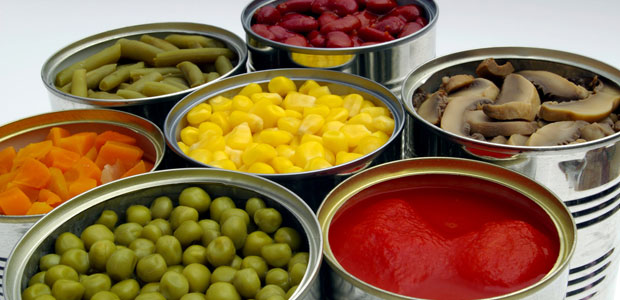Advertisement
Will the FDA Ban BPA in Food Packaging?
Environmental groups have been placing pressure on the US governing body Food and Drug Administration (FDA) to ban the toxin bisphenol A (BPA), and it looks like all the hard work may be paying off—the FDA is expected to decide whether or not it will ban BPA in food packaging at the end of this … Continued

Environmental groups have been placing pressure on the US governing body Food and Drug Administration (FDA) to ban the toxin bisphenol A (BPA), and it looks like all the hard work may be paying off—the FDA is expected to decide whether or not it will ban BPA in food packaging at the end of this month, according to environmental groups.
Although the FDA doesn’t control Canadian products, it’s possible that a decision to ban BPA in food packaging would influence Canadian governing bodies to do the same.
Whether the FDA’s March 31 news is good or bad, we’ll keep you posted with the updates.
What does BPA do?
BPA is a known endocrine disruptor, binding to estrogen receptors in the body and changing the normal functioning of estrogen in the body. It is thought to contribute to everything from childhood obesity and certain types of cancer to an increased risk of cardiovascular disease, miscarriages, diabetes, and behavioural dysfunction in children.
The Canadian government has labeled as BPA as toxic, but it still remains in many everyday products.
Where is BPA found?
Many people are aware that BPA is found in hard, clear, #7 plastics such as water bottles. However, BPA is also used in thermal paper (such as receipts) and the vast majority of the lining of food cans. Although the BPA used in cans isn’t supposed to leach into food, recent studies have shown that it does, and can dramatically increase the body’s BPA levels.
How to avoid BPA
Regardless of the FDA’s decision, make sure to follow these tips for keeping the BPA out of your food, from our article “BPA for Dinner?”
- Always choose canned goods that are clearly labelled BPA free.
- Look for products that don’t use BPA in their containers; companies that are using alternatives are likely to advertise this on their labels.
- If you use conventional canned goods, note that some canned-food products are worse than others: the highest levels of BPA are in coconut milk, soups, meats, vegetables, meals (such as pasta dishes), beans, canned juices, and canned fish.
- Choose fresh or frozen fruits and vegetables instead of conventional canned varieties.
- Check the plastic containers you use at home: those with BPA tend to be either coloured or clear transparent items and have the number 7 on them.
- Contact your favourite food manufacturers directly and ask them to use safe alternatives to BPA.





